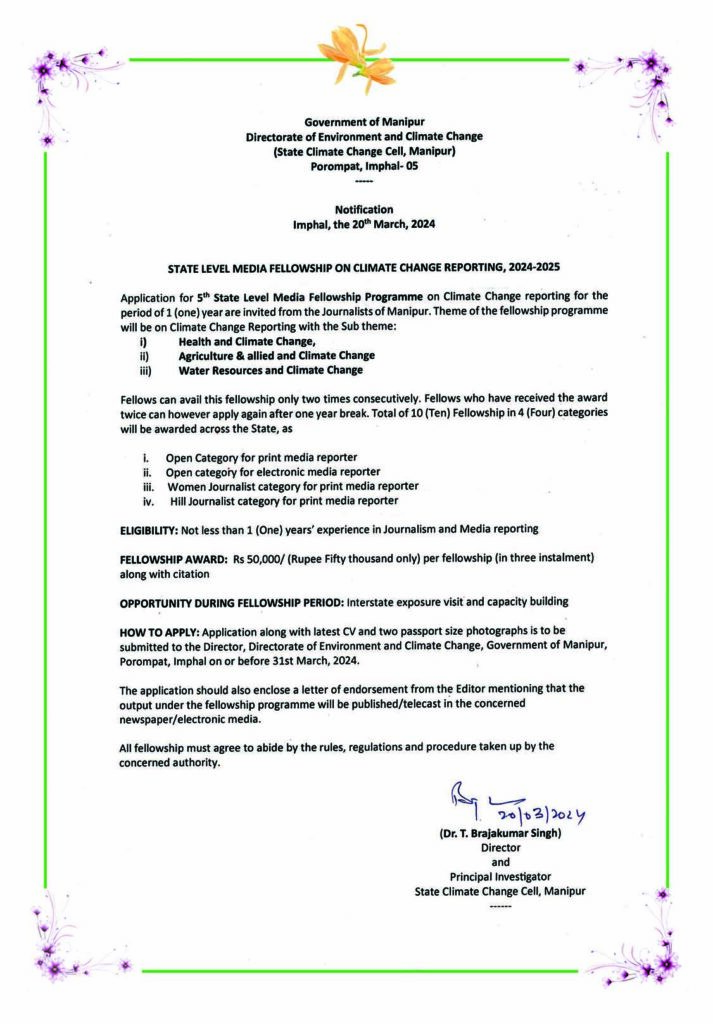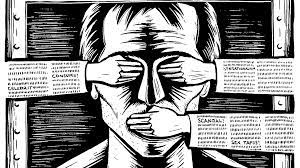The cliché that in a republic, the people are the sovereign, for it is they who chose their leaders from among themselves for fixed periods to lead them. Something seriously seems to be going wrong in the present time, both at the national level, and therefore certainly in surrogate states like Manipur. In form, democracy remains and it is indeed still the people who elect their leaders periodically, but the substance of a republic by which the people are the ultimate sovereigns seems to have evaporated slowly but surely. An unbridgeable chasm has been carefully constructed between elected leaders and their electors, so much so that the former has been projected as demigods before the eyes of the latter, and that the latter’s welfare made to seem to depend solely on the goodwill and generosity of the former. Everybody, including the media whose prime relevance is in its responsibility to speak truth to power, is now expected to cower before the elected leaders. Sadly, everybody, including again a large section of the media, seems to have without much of a protest, offered their acquiescence.
In more mature democracies, even ordinary people confront their leaders as they would a peer, and this includes leaders considered tough and authoritarian. The internet is such an equaliser, and on it are now born what have come to be generally referred to as “citizen journalists” all armed mobile phone devices with still and video cameras. Thanks to them, the world has been treated to some unbelievable pictures and videos of ordinary men and women on the streets, confronting the top leaders of their countries. Hence, we have seen an ordinary attendant of a hospitalised patient arguing and chiding the British Prime Minister Boris Johnson inside the hospital corridor, and the latter actually, as any ordinary man does, defending himself against these charges and arguing back. In another more recent and audacious video, we have seen how a man in a crowd on the side of a road, unhappy with some governmental policy, slapped the French President Emmanuel Macron when he tried to approach the crowd. Almost on a daily basis, the world is also treated to how the American press irreverently confront their top leadership, including the President, even when strong man Donald Trump was at the helm. These would have been unthinkable in India, or in Manipur for that matter. For doing far less people have landed in jail on trumped up charges of threat to public order and even the nation. Draconian laws, such as Sedition Act and National Security Act, NSA, are also freely invoked to deal with those who think it is within their rights as citizens to criticise and disagree with the leaders they have elected.
The truth is, when republics recede and seeming autocracy emerge, so does the idea of “citizen” begin to wane to be replaced gradually and progressively by the idea of “subject”. The difference between the two are obvious even from the terminologies. In a republic, the public are primary. They elect their leaders from among themselves periodically and expect them to perform to promote the common interest of all. The idea of overthrowing rulers, prevalent ever since human ancestors began organising themselves into groups and bands, have also successfully been sublimated, for now the idea of the leaders itself has been transformed and leaders remain in power only so long as they enjoy the public’s confidence. The minute they lose this confidence, they are voted out of power. In a complete autocracy, such as in a dictatorship or monarchy, this cannot happen for the people are given no power to change their kings or dictators. In imperfect democracies, such as Myanmar, this sublimation remains incomplete, therefore coups that nullify people’s mandate are routine. In a complete autocracy, the autocrats are the sovereigns and the public are not “citizens” but “subjects” the rulers dominate and rule. Since autocrats are not in power regardless of the public’s wishes, they are also prone to be suspicious of the people organising themselves to come up with parallel power structures. This suspicion is the reason behind draconian laws, not meant for tackling external enemies, but internal dissenters.
It is in this light that the recent Supreme Court’s ruling quashing the sedition case against well-known veteran journalist, Vinod Dua, is landmark. One may like or dislike Dua’s opinions but so long as he does not break the law, he should have been seen as free continue to be the uncompromising critic of power that he always has been. The SC ruling has somewhat set the limits of the applicability of the sedition act in matters that pertained to curbing the freedom of expression of an individual, but in particular the media, and this is encouraging. The past few years has been especially bad. There has been a spate of arrests of media persons under several draconian laws, in particular sedition charges and even under the National Security Act, NSA. Arguably Manipur is a front runner in the entire nation when it came to such arrests.
However, despite this landmark ruling in the Dua case, can the media presume it is now safe from being hounded under these draconian laws, almost all of them legacies from the colonial days? Hardly likely. First and foremost, these legislations have not been repealed even if individual cases have ended up quashed by courts and the government rebuked for highhandedness. There is nothing that guarantees these laws being misused again as there are no penalties for misusing them. Most of the time these laws are used with the full knowledge that ultimately the cases would be struck down in the court of law, and indeed this already is a pattern in recent time, indicating a conscious strategy. Several such cases have been dismissed in the courts as these arrests were found to be unwarranted under the very same laws invoked, yet the government with impunity has been showing no sign of remorse and continue to still use the intimidatory tactics.
In Manipur this vicious cycles of repeated arrests, detentions, releases and rearrests have even been for supposed threat to public order or the nation by comments on Facebook. It is unimaginable how a Facebook post can be a threat to India, unless of course India has become so weak and paranoid, frightened by even its own shadow. We know it for certain this is not the case at all, but the explanation may lie in what has in recent times come to be referred as SLAPP, or Strategic Lawsuit Against Public Participation. The logic is, court cases are expensive and time consuming, and for a well-endowed and resourceful party, be it government or corporation, to drag individual detractors to court amounts to a big harassment for the latter, who seldom have the resource to fight such cases for long or repeatedly. Even if they know they are not in the wrong, they have often been compelled to apologise and seek pardon just to rid themselves of the harrasments. Moreover, not wanting to get into more similar lawsuits, they begin refraining from being critical of those in power. This is a sad state of affairs, and it is no wonder India today has dropped in practically every index of freedom, from media to democracy, in surveys conducted by reputed international bodies. The media must be thankful to Vinod Dua for standing firm when under pressure, and must also resolve to live up to this high standard to the extent possible. As India born British author, incidentally a former journalist turned novelist of world renown, Eric Arthur Blair, more popularly known by his pen name George Orwell, famously said “In a time of universal deceit, telling the truth is a revolutionary act.”










